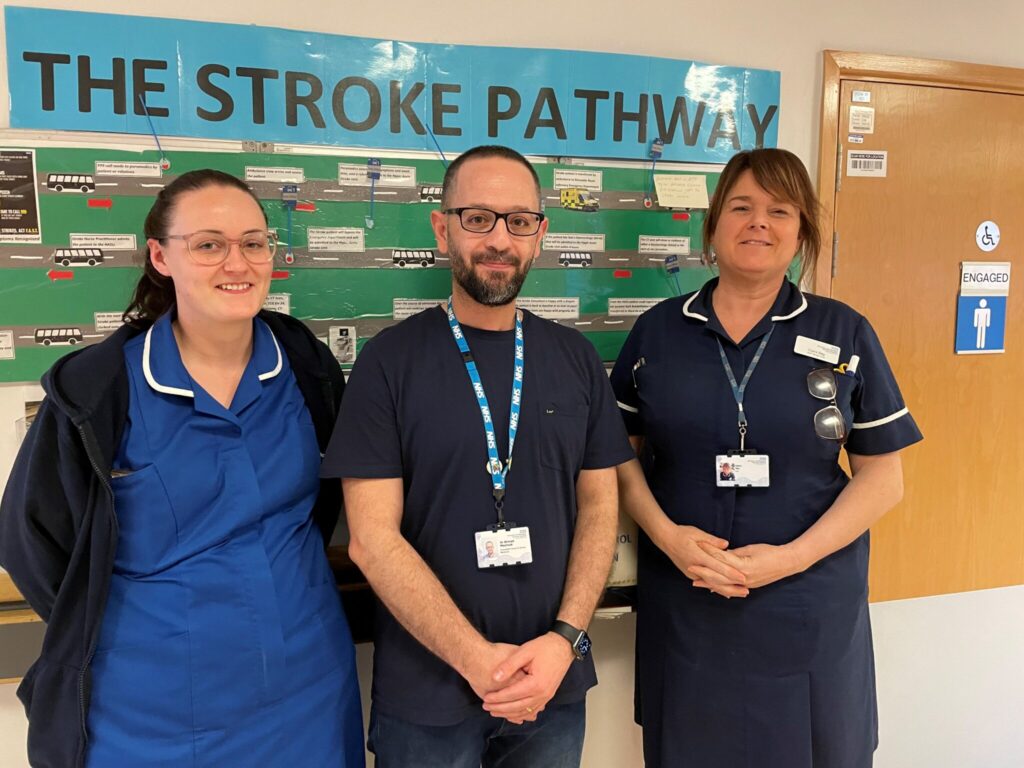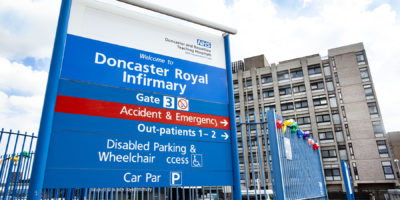Digital specialists at Doncaster and Bassetlaw Teaching Hospitals (DBTH) are on course to achieve their goal to make paper-based medical documentation a thing of the past following work with Stroke and Therapy colleagues to transform the way patient documentation is recorded.
Overall, the aim is to adopt a 99% paper-free service from Spring 2023, with learning to be applied to similar roll-outs in the Trust in the future.
When a patient has received a stroke diagnosis, they are treated on a specialised ward based at Doncaster Royal Infirmary. These patients will benefit from improved and modernised processes that will streamline their care journey. These changes to working practices means that there will be a large reduction of clinical time devoted to completing paper notes, as many of the system will work together to prepopulate basic information about the patient.

The system also means that paperwork cannot be misplaced and is accessible at any time, ensuring that clinicians have access to health data whenever they need it. These improvements in record keeping will significantly improve the overall efficiency of the Stroke service.
Digital Care Planning is one aspect of development being implemented on the Stroke ward. Care plans allow clinicians to create a personalised plan of care tailored to patient’s clinical needs. Recording this information digitally makes the information accessible for all members of the Multidisciplinary Team involved in the patients care. It provides a standardised structure for nursing documentation and is quick and easy to complete at the patient’s bedside on either a mobile device or laptop.
Colleagues caring for Stroke patients at Doncaster will use smartphone type devices to access digital systems to document and review patient’s information. These handheld devices have been securely encrypted and provide quick access for those involved in clinical care, improving communication between colleagues. This project will revolutionise patient care and enables clinical professionals more time to be spent caring for patients.
Ahmad Maatouk, Clinical Lead for the Stroke Service at DBTH, said: “In the Stroke unit, we have been using digital technologies and AI for some time. The service uses a range of apps that allows us to diagnose and advise a patient remotely, Rapid AI sends CT scans to a clinician’s device from any scanning facility in the region and also allows us to assess the size of the stroke along with other medical details. We are also piloting a new app that allows us to communicate with paramedics attending a patient’s home.
“At present we are digitising the stroke unit service, including all paper forms and documentation into a digital format. This project will have a major impact on a stroke patient as their records will be easily accessible by the clinicians in their care. The patient’s history can be evaluated as these files can also be recalled if the patient is readmitted at any time.”
Deanne Driscoll, Chief Nursing Information Officer, said: “I am delighted that the stroke ward is the first to go live with their digital processes. The project has been a fantastic example of multidisciplinary collaboration with an aim to get the service fully digital in the near future. The information collected will provide us with quality data to improve our patient care.”
Digital Transformation is the term used to describe how the Trust is making the most of new technologies to improve working practices, ultimately improving the quality of care provided for its patients. The Digital Transformation programme is a continuing process to improve hospital systems to ensure that information recorded in patient care is done so in a consistent, timely and accurate way.
Georgina Redfearne, Digital Practitioner at the Trust, said: “Visitors and patients will notice the Trust’s colleagues using mobile devices. Please be assured that these devices do not allow users to access the internet for social media or leisure browsing purposes.
“Members of staff operating the system on these devices, whether at the bedside or on a ward corridor, are performing part of their clinical role, accessing the most recent patient information or contacting colleagues securely. Our colleagues are working hard to ensure that patients receive the best care.”
Clinical members of the stroke service discuss the benefits of this important scheme of improvement.
To find out more about the digital transformation programme, go to: Digital Transformation at DBTH.



